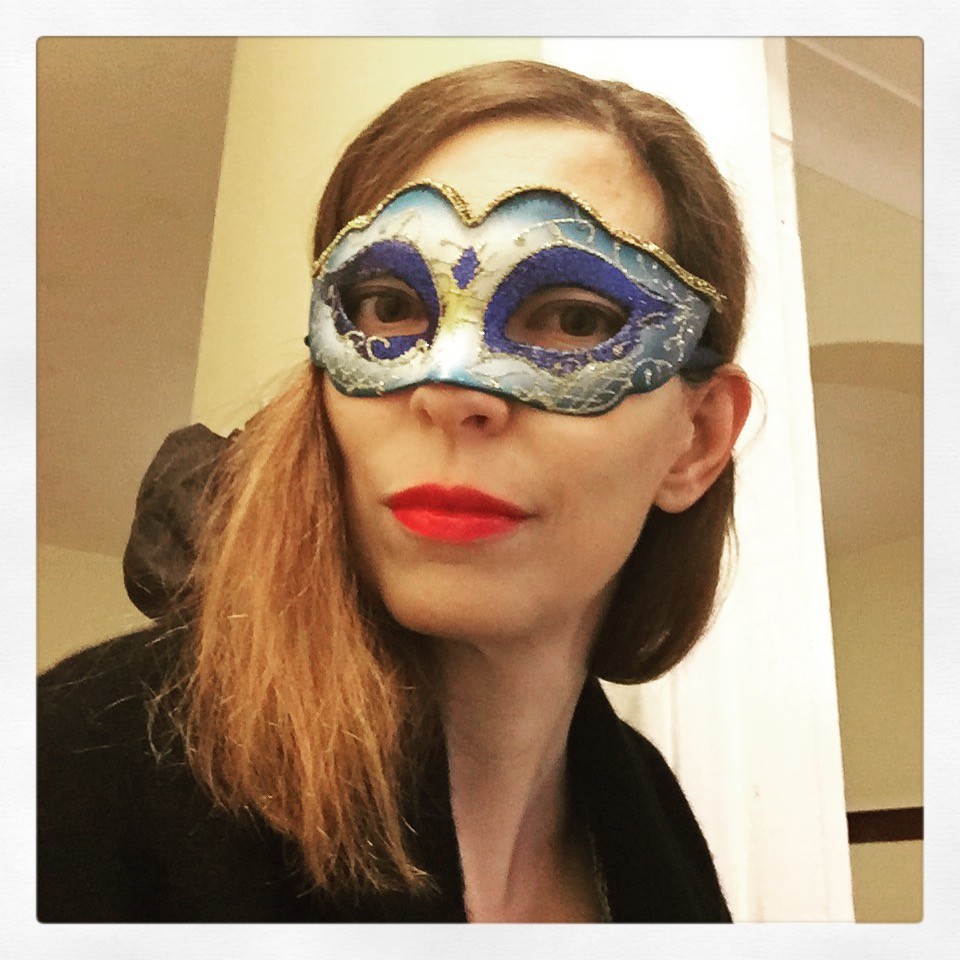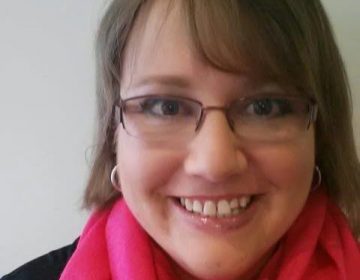
Samantha Wexler
Sadly, Samantha passed away in October 2018. Samantha’s unwavering optimism always shone through in the posts she wrote for the YACC website, and we will never forget how she inspired us to choose the sunny side of the street.
A little big about you:
Name: Samantha Wexler
City: Montreal, QC
What was your diagnosis?
Wildtype gastrointestinal stromal tumour (GIST)
What year was it?
I was diagnosed in January 2009.
What is something you’ve done that you’re really proud of?
I went back to university and completed my BFA in art history with distinction and I am now in the Masters program. I have also started a blog that chronicles my adventures of being a student and living with a chronic, life-altering diagnosis.
What is a top item on your life to do list?
Travel the world! See great art, become an authority on the symbology of mythical creatures.
What are your hobbies?
Reading, painting, sculpture, driving, adventuring.
Your diagnosis:
What was your life like before your diagnosis?
Before diagnosis, my mister and I ran our own business in the graphic design and photography industry.
How did you find out you were sick? What led to your diagnosis?
My husband and I got married on August 8, 2008 (yup, 8/8/8) and shortly after that, we moved to a semi-basement in a townhouse. After a little while, I noticed that I would get short of breath and my heart would start beating really fast when I was walking around outside. From there, it just escalated until I was having trouble taking a shower and getting dressed became a chore because I was always out of breath. I could not walk more than six feet without having to stop to catch my breath. For a while I thought I was just tired because we were working on a website and I was pretty stressed out, it was Christmastime and I figured I just needed to relax and rest a bit.
My husband tried for a while to get me to go to the doctor, but I was always told not to bother doctors with what could potentially be nothing because they had sick(er) people that they had to take care of. So, I didn’t want to waste their time to be told it was nothing. Then, I had a small dinner party for a couple of my friends. One of my guests had Hodgkin’s lymphoma and she told me I should go to the doctor because she had also waited a long time for similar reasons and in her case it was so advanced, there was nothing that her medical team could do. For some reason what she said hit a chord, and about four days later, I went to the clinic to be sent straight away for an emergency blood transfusion.
My hemoglobin was at 37 (normal being 120-140). Everyone was marvelling at how I was still able to function and get around. Of course, they asked me a ton of personal questions. Also, because it’s not often you see someone walk in with a 37 hemoglobin, all the students came to ask me questions and the big mystery became what was causing the bleeding. After two units of blood (hemoglobin raised to 67, I felt awesome), and a crazy night in the ER, they sent me home with an appointment the next day for an endoscopy. I went back, had the scope, and they found a tumour in my duodenum. I was admitted for more tests and IV iron. The end result was inoperable metastatic (wildtype) gastrointestinal stromal tumour (GIST).
What were your first thoughts when diagnosed?
My first thought was that it all made sense. Then came fear and confusion.
In which hospitals were you treated?
I have been treated at most of the hospitals here. I started at the Montreal General then went to the Royal Victoria, and finally followed my oncologist to the Jewish General.
What did your treatment consist of?
Originally, I was taking a targeted treatment and having bi-yearly scans. At the end of 2012, things started to get a little hairy after I started to bleed internally from my primary duodenal tumour and a few months later from one of my liver tumours. Now I need to be mindful of not exerting myself physically in order to avoid future bleeds. Unfortunately, it is not a matter of if it will happen again, but when. This bleeding issue has occurred six times since end 2012, each time requiring an emergency trip to the ER.
I have undergone an open RFA, a right side portal vein embolization, multiple embolizations to stop bleeding, and transcatheter arterial chemoembolization (TACE). I have also had multiple rounds of high dose radiation to prevent gastrointestinal bleeding and countless blood and platelet transfusions. I have been told by multiple specialists that this type of random bleeding is very rare and just doesn’t happen to most people. I still continue take the systemic oral targeted treatments as well.
When I was getting bi-yearly scans, everything felt pretty much like normal life. I went to school, worked a bit, and didn’t really think about GIST all that much until it was time for another scan. More recently, as things change and evolve, there are more thoughts wondering if I can get back to the point of having bi-yearly scans.
Life with cancer:
How is life different for you now post-diagnosis?
Now, if there is something that I want to do, I don’t put it off for the future because the future is now. I have also started to speak out more about what life is like when you’re living with something rare and sharing my experiences with the different types of treatments I have gone through.
I am also on a career path to doing something that I have always found really interesting and that I love very much.
What is the toughest part about having cancer as a young adult?
I think the toughest part is not being able to relate to my “civilian” (A.K.A. non-cancer having) friends anymore. They were all having babies and buying houses around the time I was diagnosed. I am also a bit older than most of the people in my Masters class, and I don’t drink or party, which also makes it difficult to fit in at times.
How are you connected with Young Adult Cancer Canada? How did it happen?
Through Hope and Cope, what is now Cancer Fight Club.
The issues:
Do you feel isolated from your peers since your diagnosis? If so, how does it affect you?
I still feel isolated from my peers. Everyone is on a different wavelength either taking care of their kids, going out to work, or being able to participate in multiple co-curricular activities at school. I have never really been one to “fit in,” so I am ok with spending a lot of time solo researching, learning a new language, and focusing on things that matter to my husband and me.
What are some lifestyle changes you’ve made since your diagnosis?
I am an active advocate for [young] people with rare disease, specifically GIST because there are few treatment options out there and there needs to be more research and clinical trials available for people who can not tolerate or who are resistant to the three treatment options that are available in Canada.
I also had to stop doing any organized physical activity like going to the gym and taking yoga classes and such because of the elevated risk of bleeding. I now walk a lot more than I did and I was already someone who walked a lot! I am also more mindful about what I eat. Sure, I like poutine and pizza, but for the most part, I try to eat clean and healthy foods in order to give my body the tools it needs to heal itself.
Resources and recommendations:
Which books/movies/podcasts/TV shows/etc. would you recommend?
I am a huge art history geek so I would tend to recommend books, websites, and TED talks that are related to those types of topics.
What are your favourite blogs and websites for passing the time?
TED.com, Facebook, Duolingo (for learning languages; I am currently learning Italian), Pigment for colouring on a tablet, Magic Puzzles. These are good apps to have on a tablet or smartphone to pass the time and either create something or learn something new.
Have you participated in any other retreats, conferences, programs, or support groups you’d like your cancer peers to know about?
I have participated in the “Club Mets” retreat and the summer retreat by Cedars CanSupport.
Stay in touch:
Are you interested in helping others facing cancer challenges? If so please let us know how you can be contacted.
I can be contacted privately through Facebook messenger, email, or my blog.
Blog: laydeewinxstudiolo.wordpress.com
(If you would like to email Samantha, please send a message to [email protected] for us to pass along.)








